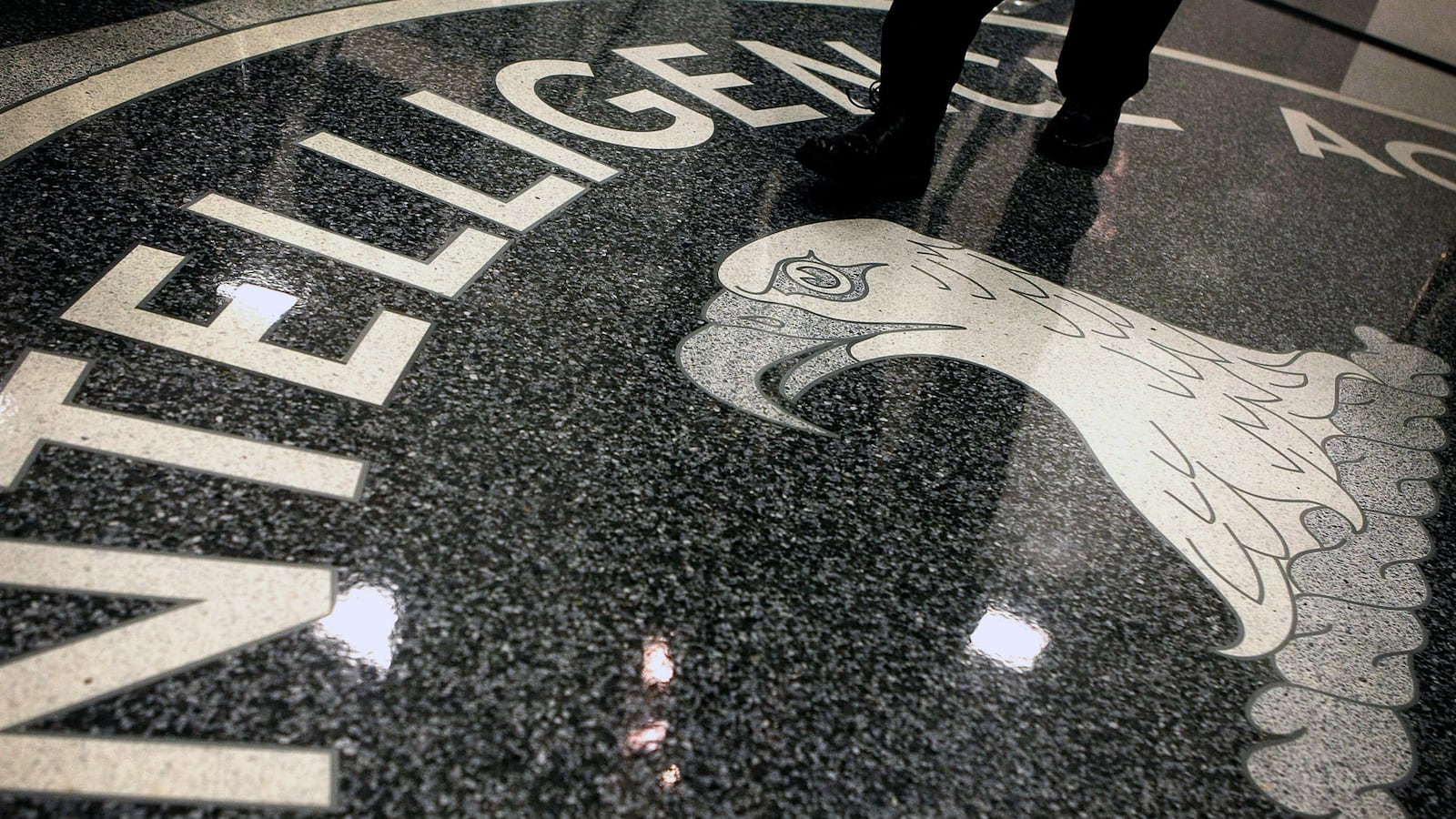There is a scene in Kathryn Bigelow’s Zero Dark Thirty (2012) in which the CIA’s Pakistan chief, played by Mark Strong, is giving his underlings the third degree. “I want to make something absolutely clear,” he says. “If you thought there was some secret cell somewhere working Al Qaeda, well, I want you to know that you’re wrong. This is it. There’s no working group coming to the rescue. There’s nobody else hidden away on some other floor.” This bit of monologue, which on first viewing wouldn’t rate among the film’s fifty most unnerving moments, is spooky nevertheless. It identifies a deep-seated belief in American omnipotence, a belief that there is always another tier of command, another secret room where whatever needs getting done is getting done, transparency or morality be damned.
In the popular imagination, that room might be a surveillance van or a torture chamber, an underground bunker stocked with preternaturally gifted hackers or a high-tech arsenal at the disposal of Special Forces. America hates the room in theory, but in a national emergency many would be outraged to find that it didn’t exist. America feels entitled to an ace in the hole. Scott O’Connor’s queasy-making new thriller novel Half World argues that the secret room really is a hole, in the sense that once dug it can be difficult to escape. Half World may be a mere “entertainment” in the Graham Greene sense of the word, but it is perfectly timed for our debate about drone warfare and domestic surveillance and “whatever needs getting done.”

O’Connor’s subject is the CIA’s notorious Project MKULTRA, which from the 1950s to the 1970s conducted chilling investigations into the manipulation of human consciousness. Hypnosis and behavior control, the kind on view in The Manchurian Candidate (1962), were attempted with sleep and sensory deprivation, drugs, and possibly outright torture. (See also Annie Jacobsen’s “What Nazis Taught the CIA.” Half World focuses on one Company man, Henry March to his family, Henry Gladwell to his keepers, tasked with initiating the program in 1950s San Francisco. Nicknamed the “Mutual Man” for his resemblance to the “featureless Mutual of Omaha adjusters” who sometimes visited Washington, Henry is a study in negative space, who assumes his humanity in our eyes only as we watch it erode.
There is some evidence, at the outset, that Henry is a man and not some sort of bipedal drone. He has a wife, Ginnie; a daughter, Hannah, who is kept up at night by fear of atomic annihilation; and an autistic son, Thomas, who imagines himself to be a locomotive. (This is, in O’Connor’s execution, less obnoxious than it sounds.) Henry is undone by the defection of his mentor. The interrogation he must endure as a result triggers the breakdown that gets him sent to the West Coast, far from the Agency but now the nerve center of its worst work. But once we see him at work, renting twin apartments on Telegraph Hill in which to build his soundproofed torture chamber and observation deck, he becomes a villain. Half World’s most frightening image is a door, “a great metal box congested with tumblers and gears,” its “interior side… without purchase of any kind.”
The first subjects of the experiments conducted by Henry and his boorish partner, Jimmy Dorn, are johns brought up to the “lab” by hookers Dorn has bribed. The idea is to reproduce methods developed by “the Chinese, maybe the Soviets,” “that empty a man’s mind so it can be filled with something new.” The targets are slipped drugs—including something new, nicknamed “Stormy,” which we know as LSD—and then observed, questioned, beaten, and reeducated. When the program demands that Henry and Dorn move on from marginal subjects to a solid citizen, Henry’s reluctance and moral discomfort threaten to become intolerable. Yet it is not that citizen’s fate but the interrogation of a Soviet enemy or asset (who can ever say which?) that causes Henry to break, flee, and vanish.
The first half of O’Connor’s book sets the tumblers and gears in motion. The second half, which takes place in the 1970s, shows us the consequences of meddling in so many lives, so many psyches. Another young agent, going by Dickie Hinkle, is sent to investigate a matter he can’t quite figure for an “intelligence concern.” A gang of bank robbers have been leaving pamphlets, apparently authored by a crackpot named Javier Buñuel—and describing the sorts of secret experiments we have just been reading about—at their crime scenes in southern California. It is on this bizarre trail that Dickie crosses paths with Hannah, as well as the wicked spooks and dashing truth-seekers who give Half World its momentum and its uncomplicated power to entertain.
If the second half of O’Connor’s book is more propulsive than the first, it must be said that the laborious build-up of the first half, its painstaking depiction of the mundane tasks associated with conducting a clandestine torture operation, make it even more disturbing. It mirrors Henry’s equally gradual loss of a hold on his own identity. O’Connor may not be a prose stylist, but his writing is orders of magnitude better than the usual thriller-ese. It has an old-fashioned, world-weary stoicism that lends a potentially ludicrous story emotional heft. Half World holds up human wreckage for whom the reader feels genuine pity, as when a prostitute ordered by Henry to flee the Bay Area and keep going “until you feel that you’re safe” asks him, “What will that feel like?”
Rudyard Kipling’s warning against “makin’ mock o’ uniforms that guard you while you sleep” is hard to forget when reading this book. Civilians will never know what they’ve been spared thanks to the heinous things their governments are willing to do. As the Soviet detainee muses to his captor: “Men who betray their countries, where do they go? Rooms like this, possibly. We have rooms like this.” Every nation must have its rooms, but there is such a thing as too many. A nation protected by its moral compromises risks becoming not only monstrous but also pointless, like a man watching himself on CCTV, fearful of what he might do. Half World is a welcome reminder that there are some instances in which we’d rather take our chances than be guarded by those who operate this way.




